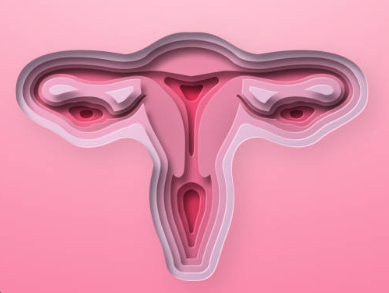
What is: Emotional Dysregulation?
Emotional dysregulation makes it difficult to manage emotions, cope with stress, and maintain stable relationships. Often linked to ADHD, trauma, RSD, and hormonal changes, it can lead to mood swings, emotional overwhelm, and impulsivity. Learn the science behind emotional dysregulation and discover effective, neurodivergent-friendly strategies for emotional balance.

What is: Adenomyosis and Endometriosis?
Adenomyosis and endometriosis are common but misunderstood conditions that cause chronic pain, heavy periods, and bloating. Learn the differences between adenomyosis and endometriosis, their symptoms, and the best treatment options.

What is: Shame?
Shame is a deeply painful emotion that can affect self-worth, mental health, and relationships. Unlike guilt, which is tied to behavior, shame is linked to identity, making individuals feel fundamentally flawed. Learn how shame develops, its connection to trauma, ADHD, and RSD, and the best strategies for healing and self-compassion.

Did You Know? Rejection Sensitivity Dysphoria (RSD) Can Feel Like Physical Pain
Rejection doesn’t just hurt emotionally—for those with Rejection Sensitivity Dysphoria (RSD), it can feel like physical pain. Research shows that social rejection activates the same brain regions as physical injuries, making even minor criticism feel overwhelming. This heightened sensitivity can impact relationships, self-esteem, and daily life, leading to avoidance, people-pleasing, or emotional outbursts. The good news? Understanding RSD can help you develop practical strategies to manage its effects, build resilience, and navigate social interactions with confidence.

What is: Rejection Sensitive Dysphoria (RSD)?
Rejection Sensitive Dysphoria (RSD) is an intense emotional response to perceived or actual rejection, often linked to ADHD, trauma, and hormonal changes. It can lead to overwhelming emotional pain, anxiety, and relationship challenges. Learn how RSD affects mental health and discover strategies to manage emotional sensitivity and build resilience.

What is: Dopamine Deficiency?
Dopamine deficiency affects focus, motivation, and emotional regulation, contributing to ADHD, stress, and brain fog. Learn about the symptoms, causes, and science-backed ways to boost dopamine naturally.

What is: Hormone Therapy (HRT)?
Hormone therapy (HRT) is used to manage menopause symptoms, bone health, and hormonal imbalances. Learn about the types of HRT, benefits, risks, and alternatives to make an informed decision.

What is: Hysterectomy?
A hysterectomy is a surgical procedure to remove the uterus, often performed for conditions like fibroids, endometriosis, or gynecologic cancers. While it can provide relief from pain and heavy bleeding, it also has long-term effects on hormone levels, bone health, and emotional well-being. Learn about the types of hysterectomy, recovery, and what to expect after surgery.

What is: Executive Dysfunction?
Executive dysfunction makes tasks like planning, time management, and emotional regulation feel overwhelming. It is commonly linked to ADHD, trauma, and hormonal changes, impacting productivity and daily life. Understanding executive dysfunction can help individuals develop strategies to improve focus, organization, and self-regulation.

What is: Postmenopause?
Postmenopause begins after a woman has gone 12 consecutive months without a menstrual period, marking the end of the menopausal transition. While symptoms like hot flashes may decrease, long-term health considerations such as bone density, cardiovascular health, and metabolism become more important. Understanding how to support your body in this phase can help women maintain vitality and longevity.

Did You Know? ADHD and Menopause Are Connected
Menopause doesn’t just bring hot flashes and sleep disturbances—it can also make ADHD symptoms worse. Estrogen plays a key role in dopamine regulation, which impacts focus, memory, and emotional regulation. As hormone levels fluctuate during perimenopause and menopause, many women with ADHD experience worsening brain fog, emotional sensitivity, and executive dysfunction. The good news? Understanding the connection between ADHD and menopause can help you develop strategies to regain focus, manage emotions, and thrive in midlife.

What is: Menopause?
Menopause is the transition marking the end of a woman’s reproductive years, occurring after 12 consecutive months without a period. It brings hormonal shifts that affect sleep, mood, brain function, and long-term health. Understanding menopause can help women navigate this phase with confidence and informed choices.

The Bottom Line: Why Supporting Perimenopausal Women Is Crucial for Business Success
Perimenopause remains a taboo topic in many workplaces, yet its impact on employee productivity and well-being is undeniable. Companies that support perimenopausal women see improved retention, reduced absenteeism, and stronger workplace morale. Learn why investing in menopause-friendly policies is a business advantage.

How Coaching Can Empower Women Through the Perimenopause Transition
Perimenopause can bring overwhelming symptoms like brain fog, mood swings, and fatigue—yet many women feel dismissed by doctors. Coaching offers personalized guidance, emotional support, and actionable strategies to help women regain control of their health and well-being.

Why Women Must Advocate for Their Own Health: A Call to Action
For generations, women have fought for bodily autonomy, yet even today, medical dismissal and gaslighting persist. This article explores why self-advocacy is essential for women’s health, the history of systemic bias, and how to demand the care we deserve.

My Journey: Perimenopause, From Dismissal to Empowerment
Perimenopause symptoms can be confusing and often dismissed. My experience with heavy bleeding, hormonal fluctuations, and ADHD led me to advocate for myself through multiple medical opinions until I finally got answers. Learn how I discovered the link between ADHD, perimenopause, and adenomyosis—and how you can advocate for yourself too.

Did You Know? Perimenopause Can Mess with Your Memory
You expect hot flashes and night sweats with perimenopause, but what about brain fog, memory lapses, and mental sluggishness? Many women feel frustrated and even scared when they start forgetting words mid-sentence or struggling to focus at work. The good news? These cognitive changes are normal—and with the right strategies, you can regain clarity and confidence.

What is: Perimenopause?
Did you know that nearly half of women don’t realize they’re in perimenopause until symptoms disrupt their daily lives? Mood swings, brain fog, and exhaustion are often mistaken for stress or aging—but declining estrogen plays a major role. Perimenopause is a key hormonal transition that can last up to a decade, affecting mental clarity, emotional balance, and overall well-being. Learn the science behind perimenopause, why it’s misunderstood, and how coaching can help you adapt and thrive during this phase of life.

From Manager to Leader: Key Mindset Shifts for Success
The difference between a manager and a leader can make or break a team’s success—and mental health. Learn key mindset shifts to inspire, empower, and drive long-term impact.

How a Neurodivergent Business Coach Helps You Shine in a Neurotypical Business World
The workplace wasn’t built for neurodivergent professionals—but coaching can help you thrive in it. Learn how ADHD, autism, and executive coaching create success.
